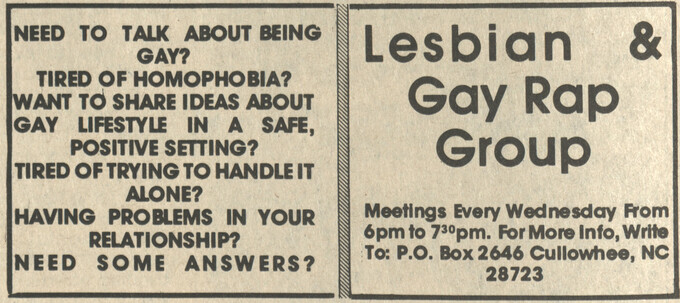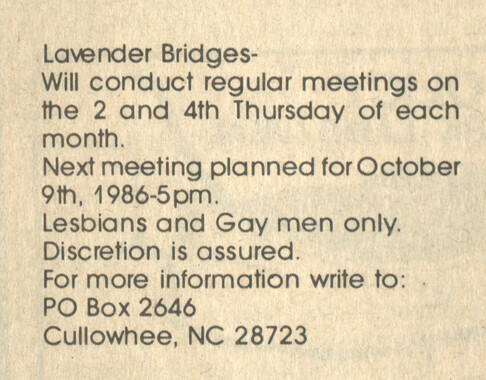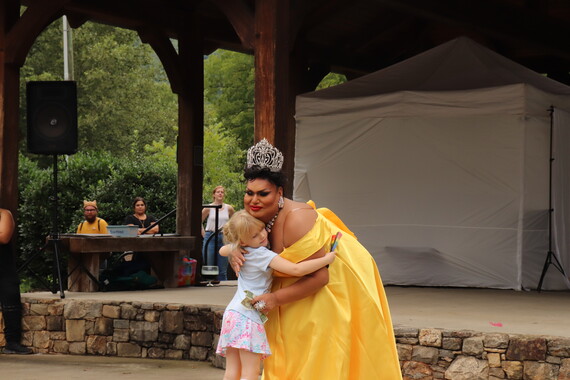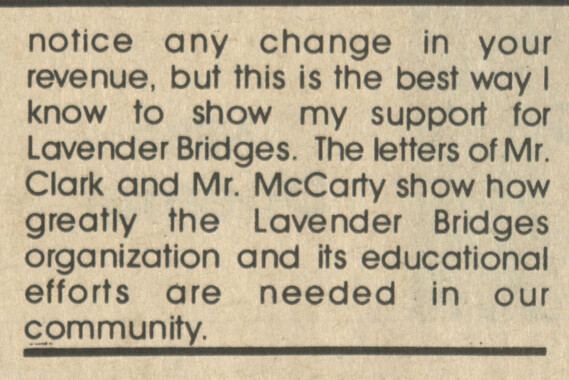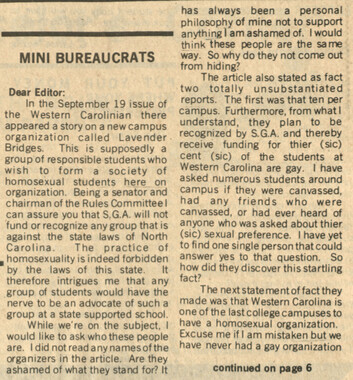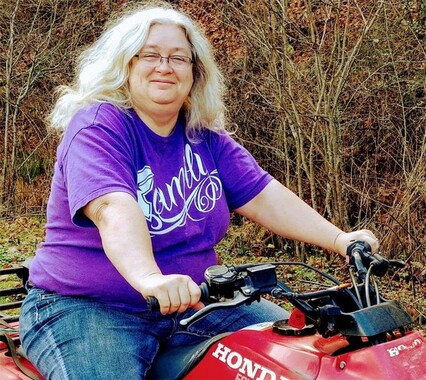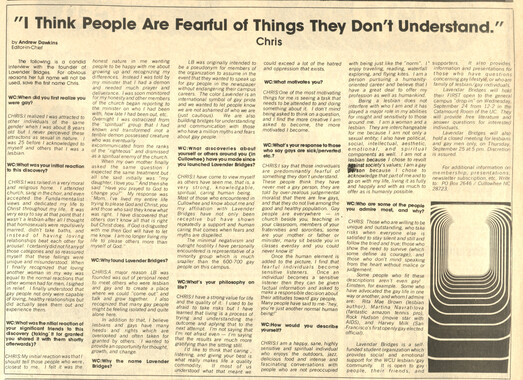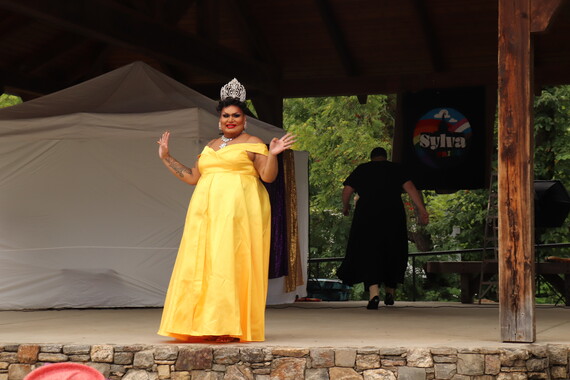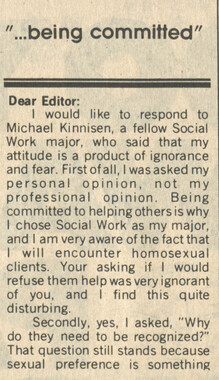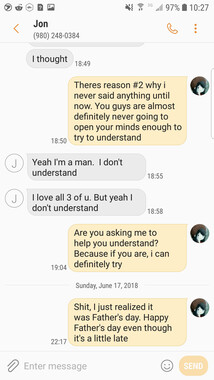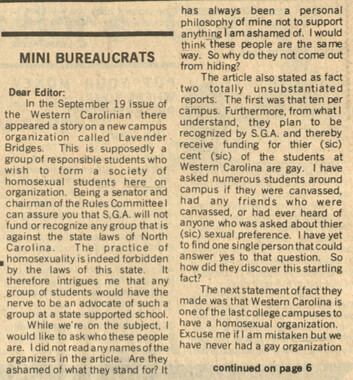Western Carolina University (20)
View all
- Canton Champion Fibre Company (2308)
- Cherokee Traditions (292)
- Civil War in Southern Appalachia (165)
- Craft Revival (1942)
- Great Smoky Mountains - A Park for America (2766)
- Highlights from Western Carolina University (430)
- Horace Kephart (941)
- Journeys Through Jackson (154)
- LGBTQIA+ Archive of Jackson County (85)
- Oral Histories of Western North Carolina (314)
- Picturing Appalachia (6772)
- Stories of Mountain Folk (413)
- Travel Western North Carolina (160)
- Western Carolina University Fine Art Museum Vitreograph Collection (129)
- Western Carolina University Herbarium (92)
- Western Carolina University: Making Memories (708)
- Western Carolina University Publications (2283)
- Western Carolina University Restricted Electronic Theses and Dissertations (146)
- Western North Carolina Regional Maps (71)
- World War II in Southern Appalachia (131)
University of North Carolina Asheville (6)
View all
- 1950s (1)
- 1960s (1)
- 1970s (4)
- 1980s (50)
- 1990s (10)
- 2000s (12)
- 2010s (19)
- 2020s (30)
- 1600s (0)
- 1700s (0)
- 1800s (0)
- 1810s (0)
- 1820s (0)
- 1830s (0)
- 1840s (0)
- 1850s (0)
- 1860s (0)
- 1870s (0)
- 1880s (0)
- 1890s (0)
- 1900s (0)
- 1910s (0)
- 1920s (0)
- 1930s (0)
- 1940s (0)
- Buncombe County (N.C.) (1)
- Jackson County (N.C.) (84)
- Appalachian Region, Southern (0)
- Asheville (N.C.) (0)
- Avery County (N.C.) (0)
- Blount County (Tenn.) (0)
- Cherokee County (N.C.) (0)
- Clay County (N.C.) (0)
- Graham County (N.C.) (0)
- Great Smoky Mountains National Park (N.C. and Tenn.) (0)
- Haywood County (N.C.) (0)
- Henderson County (N.C.) (0)
- Knox County (Tenn.) (0)
- Knoxville (Tenn.) (0)
- Lake Santeetlah (N.C.) (0)
- Macon County (N.C.) (0)
- Madison County (N.C.) (0)
- McDowell County (N.C.) (0)
- Mitchell County (N.C.) (0)
- Polk County (N.C.) (0)
- Qualla Boundary (0)
- Rutherford County (N.C.) (0)
- Swain County (N.C.) (0)
- Transylvania County (N.C.) (0)
- Watauga County (N.C.) (0)
- Waynesville (N.C.) (0)
- Yancey County (N.C.) (0)
- Clippings (information Artifacts) (46)
- Interviews (25)
- Photographs (23)
- Sound Recordings (21)
- Transcripts (24)
- Video Recordings (physical Artifacts) (4)
- Aerial Photographs (0)
- Aerial Views (0)
- Albums (books) (0)
- Articles (0)
- Artifacts (object Genre) (0)
- Bibliographies (0)
- Biography (general Genre) (0)
- Cards (information Artifacts) (0)
- Crafts (art Genres) (0)
- Depictions (visual Works) (0)
- Design Drawings (0)
- Drawings (visual Works) (0)
- Envelopes (0)
- Facsimiles (reproductions) (0)
- Fiction (general Genre) (0)
- Financial Records (0)
- Fliers (printed Matter) (0)
- Glass Plate Negatives (0)
- Guidebooks (0)
- Internegatives (0)
- Land Surveys (0)
- Letters (correspondence) (0)
- Manuscripts (documents) (0)
- Maps (documents) (0)
- Memorandums (0)
- Minutes (administrative Records) (0)
- Negatives (photographs) (0)
- Newsletters (0)
- Newspapers (0)
- Occupation Currency (0)
- Paintings (visual Works) (0)
- Pen And Ink Drawings (0)
- Periodicals (0)
- Personal Narratives (0)
- Plans (maps) (0)
- Poetry (0)
- Portraits (0)
- Postcards (0)
- Programs (documents) (0)
- Publications (documents) (0)
- Questionnaires (0)
- Scrapbooks (0)
- Sheet Music (0)
- Slides (photographs) (0)
- Songs (musical Compositions) (0)
- Specimens (0)
- Speeches (documents) (0)
- Text Messages (0)
- Tintypes (photographs) (0)
- Vitreographs (0)
- WCU Gender and Sexuality Oral History Project (23)
- A.L. Ensley Collection (0)
- Appalachian Industrial School Records (0)
- Appalachian National Park Association Records (0)
- Axley-Meroney Collection (0)
- Bayard Wootten Photograph Collection (0)
- Bethel Rural Community Organization Collection (0)
- Blumer Collection (0)
- C.W. Slagle Collection (0)
- Canton Area Historical Museum (0)
- Carlos C. Campbell Collection (0)
- Cataloochee History Project (0)
- Cherokee Studies Collection (0)
- Daisy Dame Photograph Album (0)
- Daniel Boone VI Collection (0)
- Doris Ulmann Photograph Collection (0)
- Elizabeth H. Lasley Collection (0)
- Elizabeth Woolworth Szold Fleharty Collection (0)
- Frank Fry Collection (0)
- George Masa Collection (0)
- Gideon Laney Collection (0)
- Hazel Scarborough Collection (0)
- Hiram C. Wilburn Papers (0)
- Historic Photographs Collection (0)
- Horace Kephart Collection (0)
- Humbard Collection (0)
- Hunter and Weaver Families Collection (0)
- I. D. Blumenthal Collection (0)
- Isadora Williams Collection (0)
- Jesse Bryson Stalcup Collection (0)
- Jim Thompson Collection (0)
- John B. Battle Collection (0)
- John C. Campbell Folk School Records (0)
- John Parris Collection (0)
- Judaculla Rock project (0)
- Kelly Bennett Collection (0)
- Love Family Papers (0)
- Major Wiley Parris Civil War Letters (0)
- Map Collection (0)
- McFee-Misemer Civil War Letters (0)
- Mountain Heritage Center Collection (0)
- Norburn - Robertson - Thomson Families Collection (0)
- Pauline Hood Collection (0)
- Pre-Guild Collection (0)
- Qualla Arts and Crafts Mutual Collection (0)
- R.A. Romanes Collection (0)
- Rosser H. Taylor Collection (0)
- Samuel Robert Owens Collection (0)
- Sara Madison Collection (0)
- Sherrill Studio Photo Collection (0)
- Smoky Mountains Hiking Club Collection (0)
- Stories of Mountain Folk - Radio Programs (0)
- The Reporter, Western Carolina University (0)
- Venoy and Elizabeth Reed Collection (0)
- WCU Mountain Heritage Center Oral Histories (0)
- WCU Oral History Collection - Mountain People, Mountain Lives (0)
- WCU Students Newspapers Collection (0)
- Western North Carolina Tomorrow Black Oral History Project (0)
- William Williams Stringfield Collection (0)
- Zebulon Weaver Collection (0)
- College student newspapers and periodicals (44)
- Gender nonconformity (4)
- African Americans (0)
- Appalachian Trail (0)
- Artisans (0)
- Cherokee art (0)
- Cherokee artists -- North Carolina (0)
- Cherokee language (0)
- Cherokee pottery (0)
- Cherokee women (0)
- Church buildings (0)
- Civilian Conservation Corps (U.S.) (0)
- Dams (0)
- Dance (0)
- Education (0)
- Floods (0)
- Folk music (0)
- Forced removal, 1813-1903 (0)
- Forest conservation (0)
- Forests and forestry (0)
- Great Smoky Mountains National Park (N.C. and Tenn.) (0)
- Hunting (0)
- Landscape photography (0)
- Logging (0)
- Maps (0)
- Mines and mineral resources (0)
- North Carolina -- Maps (0)
- Paper industry (0)
- Postcards (0)
- Pottery (0)
- Railroad trains (0)
- Rural electrification -- North Carolina, Western (0)
- School integration -- Southern States (0)
- Segregation -- North Carolina, Western (0)
- Slavery (0)
- Sports (0)
- Storytelling (0)
- Waterfalls -- Great Smoky Mountains (N.C. and Tenn.) (0)
- Weaving -- Appalachian Region, Southern (0)
- Wood-carving -- Appalachian Region, Southern (0)
- World War, 1939-1945 (0)
Interview with Daisy Anderson and Helen Tugwell, transcript
Item
Item’s are ‘child’ level descriptions to ‘parent’ objects, (e.g. one page of a whole book).
-
Transcript of interview with Daisy Anderson and Helen Tugwell
-
-
Anderson and Tugwell 1 Interviewees: Daisy Anderson and Helen Tugwell Interviewer: Rachel Shaw Date: July 7, 2021 Length: 00:55:16 Location: Jackson County Summary: Daisy Anderson was born and raised in Wilson, North Carolina. Helen Tugwell was born and raised in Stantonsburg, North Carolina. Anderson and Tugwell have been together over twenty-eight years. In their interview, they discuss their community and faith relationships, meeting one another, and their separate coming out journeys. START OF INTERVIEW Rachel Shaw: And I'm going to start it right now. Today's date is... actually, I'm not going to start it because I forgot what today's date was. Daisy Anderson: Seventh. RS: Okay, today's date is Wednesday, July 7th. My name is Rachel Shaw and I'm talking with. Daisy Anderson: Daisy Anderson. RS: And. Helen Tugwell: Helen Tugwell. RS: And could you just please each tell me where you were born and what year if you're comfortable. DA: Wilson, North Carolina, 1949. HT: Stantonsburg, North Carolina, 1937. RS: And your preferred pronouns are? DA: She. RS: Yeah. And you have been living in western North Carolina for how many years? DA: I have been here for 47 years. HT: I've been here for 28. RS: And so, I'm just going to start off with some very beginning questions. How would you each Anderson and Tugwell 2 describe yourselves? DA: That's pretty broad. RS: Yeah, they start off with some really broad questions that you can define however you want. DA: How I define myself, very independent. I have always been independent and then pretty much self-employed, business owner, Lowes employee, love the outdoors and... I'm trying to thinkHT: That's enough. DA: She said that's enough, so. RS: So how would you describe yourself? HT: I'm also very independent. My work has always been professional in nature and I'm a big, avid reader. RS: And where do you like to start your story? You can choose anywhere you want to begin this interview with, if you want to just drop me in a place in your individual lives, or a place where you two first met or anything like that. HT: Well, individually, I think that at a very young age I perceived that I was different from other girls and did not really understand anything about it at the time, but just learned over time. That was when we didn't have computers. So I remember going to the library one time and looking up the word homosexual and what it meant. And of course, back then, we had to keep everything private. You didn't talk about it. We were expected to date guys and that's what we did. And it was by the time I got to college, I finally figured out that I was gay, but I was still having to hide it because it just wasn't acceptable at all back then. So after college was finally when I threw in the towel and just decided to be myself, see what happened. RS: Where did you live after college? Did you move anywhere that you felt more safe as, or did you just go where youHT: Yeah, I came up there in my early 20s. So this when I just decided toDA: Be you. HT: ... Follow my own road. RS: That's great. Anderson and Tugwell 3 HT: Mine was very different. I had absolutely no role models for being gay when I was a teenager. And I did what was expected, you're either a nurse, or a secretary, or get married. I got married at 18, and I was married and I have three adult sons. And when I was maybe 42, POW. I had felt all those years there was something, but I finally came out when I was about 42. And never had any issues with anybody anywhere about it. We were just married almost three years ago. My middle son said to me one day, "Mom, why aren't you and Daisy married?" And I said, "Well, because I didn't think you would approve." He said, "Hell, I'll give you a party." So that's mine was sort of different from hers. RS: And what each brought you? I know you moved after college to western North Carolina andHT: And I always wanted to live in the mountains and I met her in Greensboro. I was selling the house, and she was my realtor, and we clicked. And I was about ready to retire and she had a house here, and so, that's how I got here with her. DA: I went to camp in Tryon when I was a kid for years, a YMCA camp, every summer. And that's when I decided I wanted to live in the mountains. RS: And let's see, I'm trying to go through all the questions. They have a big list for me and I want to make sure I cover all my bases. And so you both grew up outside of western North Carolina, but in North Carolina? HT: Yes. RS: So if you'd like, would you like to describe where you grew up and how long you lived there? DA: We actually did not know each other, but I grew up in Wilson, North Carolina, which is aboutHT: 10 miles. DA: 10 miles where she grew up. Though, of course, we didn't know each other. HT: Of course, of the age differences is one thing, I'm 12 years older than she. DA: 11. HT: 11, okay. I don't do math either. DA: So, I left there as soon as I got out of high school, I went off to college and never went back except to visit family, that was it. Anderson and Tugwell 4 HT: I lived in my little town until I was married and then I moved to Wilson and stayed there until, I don't know, sometime in the... At 42, when I left my husband, I had an offer to work with a state department of public construction, and I was given an option of going to Charlotte or Greensboro, and of course, I chose Greensboro, I don't like Charlotte at all. And that's where my life sort of started, as a new life. But my little town I grew up in was a little tiny with a supermarket, and a couple of churches, and teenagers that hung out. We all hung out at somebody's house, just small, gossipy, little town. She's not bothering you. RS: No, I don't mind her at all, she's so cute. But if you like, could you just describe what was... I'm trying to figure out where this... what was the final moment that pushed you into coming out at 42? What helped you realize that was the right move for you and how to go about it? HT: Actually, it was a former student, and I've used the word former, former student who was gay and we became pretty good friends. And I realized that I had feelings for this person that were not what I was feeling. I said, when I was a teenager, I fell in lust rather than in love, and I got married. And then many years later, I did all my college, three degrees I have now, and sort of came of age and my husband stayed where he was. Well, this young woman was mature beyond her years and was there. And we just spent several years just having fun, not intimate or anything like, just having a good time. But I saw that there was a whole new world out there, and that's when it happened for me. DA: I finally just got tired of pretending and got tired of trying to date men. So I just decided that I wasn't going to do that anymore. And that was in my 20s, like I said before. RS: So around what years was…? DA: Well, I graduated from high school in 1967. I moved up here in '76. So it was between '67 and '76 when I got out of college and realized that I wanted to go on a different path, so within that time frame. And then when I moved up here, I moved up here with a woman that was going to go to Western, so that's how I ended up here. RS: Were you two ever involved with Asheville's gays scene at all or did you just stay within Jackson County? DA: There are so many gay people in Jackson County. As Helen always says, if you took all the gay people out of Jackson County, it wouldn't be anybody left. HT: It is a wonderful place to live with that regard. I mean, all of our friends here are out and nobody has to hide, nobody gives a damn. My church that I go to, we're both Episcopalians but she doesn't attend usually, but we went to talk to the priest about getting married, and the priests immediately said, "Oh good, oh good." She said, “Can the church give you all dinner?” And all my church was there. I mean, it's very open, and caring, and lots of professionals, and we depend on each other. It's a wonderful network, it is. Anderson and Tugwell 5 RS: Have you been involved, either one of you, with any local LGBT organizations? HT: We were both involved with Out in the Mountains. RS: Okay, that was the one I was going to ask you about. HT: When it first started, and then, well, for me, the longer I was here, I developed friends that were gay and straight, and I did not... Out in the Mountains became more of men. We would go to some but it became like, I would say like 80% men and a few women tossed in, and that's when I sort of lost interest in it. So that'sDA: Is that still going on? It is. HT: Yes, it is. Yes, it is. It served its purpose for me to begin with here because I kind of moved here knowing nobody but her, so it sort of helped me. And then I'm very outgoing and I found my own friend base, so I didn't really need that anymore. And in Greensboro, I was involved there too. But anyway, go ahead. RS: This is just kind of sprouting off of that, but just going in further, how have you built a family/support network in western North Carolina? Specifically within your church community, how has that happened? HT: First of all, we've never made a secret of it. In my little church here, they're three openly gay couples that go there. St. David's has a lot there also. And you go in and you just don't make an issue. But if there's a party, she's involved. If there's something at church and she wants to go, she's involved. And it was not, "Let's invite Helen, let's invite Helen and Daisy." And so everything that goes on at the church was justDA: It was very open. Very accepting. But that’s in the Episcopal Church. HT: Very caring. It would have been different, I think, had we been Baptist. DA: Oh yeah, of course. That would not be good. RS: Would you like to talk more about other… HT: I don't know other denominations, so I can't speak to that. I just don't know any of our gay friends who are Baptist. That's the only thing I can say. I haven't ever attended a Baptist church here. RS: Sorry, I'm trying to skip around again because we're going allHT: I know, I can't stay in line. Anderson and Tugwell 6 RS: No, it's all the questions are just in this perfect little list and that's never how interviews go. There's always just fun little pockets of information that you have to jump back to. HT: Well, you do what you need to. RS: Okay. Do you remember any particular individuals who impacted you on how you identify and how you came out within LGBTQ committee? DA: Not so much when I came out. I think, moving up here and getting involved, when I first started working at Lowe's, I met a couple of women there that were gay and we got a network there. And then, a couple of people here, Joanne and Jodie especially, did a lot of work with gay lesbian people, and they were two of our best friends. HT: Jody was a professor at Western, and she and her partner had been together since God was a baby. They know everybody, they knew everybody. DA: They knew everybody, and we met everybody. It was just a really broad watchful accepting group of people. And we're still all friends and it just seems to get bigger and better. I mean, I know that there are people in the fringe around here that I would never talk to about being gay, but there are so many people that are so open and it's gotten a lot better in 47 years, a lot more open, and I feel comfortable talking about it to most people, because most people don't care anymore. RS: Yeah. And are there any specific people that you can think of, right now, that have positively impacted the Western North Carolina gay community that have really stuck out to you at all? DA: Well, Joan and Jodie did a lot of that. They had meetings and counseling. And Barb and Betsy, I don't know, most of the people that we know have done... We have not done that type of thing where we would reach out to other people, but we were involved in their groups and the things that they tried to do. RS: And going back to what you were saying, if in those 47 years of change, what is the biggest change you've seen that stands out to you the most? HT: She's thinking, I'll tell you. For me, it's the change in attitude of young people. Young people don't care what your race is or what your sexual orientation is, thank God for children. And I think that's permeating the families. DA: They are a lot more open. HT: They're much more open and much more accepting, and I think that just sort of begins to spread. And I think we've become more visible. My oldest son's wife, when I first came out to them, she said immediately, she wasn't sure if she was comfortable leaving her children with me, their grandmother. She's dyed in the wool, she ought to be bad but she's not, but she's got Anderson and Tugwell 7 that mentality. When she met the person I was with then, it wasn't a month before she was calling me to see if we could babysit. I mean, what I have found, I think she agrees, if you know the person, you realize, "They aren't that different from me." DA: They just need to sit down and get to know you. HT: Get to know you. DA: ... Because we're just like everybody else. HT: The thing that I think hurts gay people more than anything else, the only people that make the news, and I've marched in five national pride marches, San Francisco several times, New York, Chicago, I've done that, and the only thing that ever made the news were the men with their asses sticking out of chaps. They never talked about, "Here's grandma Helen. She's got a nice stable family." And I think that… DA: They don't see this. HT: They don't see this. The only thing that makes the news here are the robberies and rape, bad news makes it. So if you're not knowledgeable in the gay community, all you see are what they see on television, I think that hurts us. I'm not in for stopping it, but I just wish the media would show the other side of it also. RS: Do you have anything else you want to add to her statement? DA: We think so much alike. When I first moved up here, I ended up buying a full-service gas station in Dillsboro and I was a woman, and it was full service. And I was out there pumping gas, and you would not believe the looks and the remarks that I got when I first started doing that, because up here, back then, women didn't do that. I had one guy asked me one day, he said, "Whose woman are you?" I said, "I'm my own woman." He said, "Well, you're pretty stout, looks like you'd be good at carrying a bucket of water." I said [inaudible]. So it took a few years. And then it got to the point where they respected me because they saw that I was a hard worker, that I did… HT: You respected yourself. DA: That I had my own business, and then we got to be friends. And I still see people, I sold that gas station in 1992, and there are still people that come into Lowe's and see me and say, "Aren't you the one on that gas station in Dillsboro? I wish you'd open it back up." So they came around, but mountain people are very stubborn, and they have to get… HT: Clique-ish, I think. DA: They have to get to know you and trust you before they'll open up any at all. Anderson and Tugwell 8 HT: For a while, we had two ladies that cleaned house for us. And both of them were loving, caring, Baptist people, very strong in their faith, which I respect. They got to know us and they love us to this day. I mean, ain't that true? So it's you have to know somebody, I don't care if you strike gorgeous Marilyn Monroe walking up the driveway, until you know that person, you need to have feelings. DA: I agree. They just need to get all that preconception stuff out of their head, and just sit down, and just talk. RS: Have you ever found yourself challenged trying to get to know somebody to at a point or have you always after that introductory five minutes, have you found it to be a lot easier? HT: Well, I've gotten to know a lot of people, a lot of gay people that I did not necessarily like because they were just different from me in a lot. I'm not real outgoing gay, I don't talk about it. DA: I'm not putting a bumper sticker on. HT: We don't put anything on our car. I don't talk about it. It's just me and I don't like people that are very just out there, but I'm just not that kind of person. I wouldn't be that kind of person if I was not gay. I mind my own business, you mind your business. I'm who I am, you're who you are, and that's just the way it is. DA: The funny thing is in I think the mind and the perception of the heterosexual community, it's all about sexual orientation. In real life, that's probably the bottom of the score. It has really so little to do with actual sex it's the person that you love, it's not a sexual partner, would you think so? HT: Mm-hmm (affirmative). RS: And just going back, can you talk about the national pride marches you were involved with? HT: Oh God, great fun. They were great fun. DA: We went to one together in San Francisco, it was great. They closed the streets down and we were out dancing on the streets and the bands, and it was amazing. HT: Then it was, I mean, just hundreds of thousands of people, and it was just fun, it was fun. I mean, you could watch what you wanted. And same thing's true in New York city and in Chicago, the places that I took part in, but it was a feeling of community because everybody out of those hundreds of thousands marching and spectators were not the men with their butts out, they were fun people just there to have a good time. Lots of color, lots of everything. But one time, we were going before the party, this was in San Francisco, and we were going Anderson and Tugwell 9 over to the Castro, to a bar. And we got over there and the person who owned it said, "I don't think y'all want to be here tonight." And so, there were no cabs that would stop. We were going to try to take a cab probably back to our hotel downtown. But anyway, we couldn't get a cab. So the owner of that restaurant/bar came out and stopped a cab in the middle of the street for us and said, "Take these ladies where they want to go." So that was a little bit scary, but I've never had any bad and negative encounter, I don't think. Not with another person over it. Never. DA: No, I don't think so either. HT: Among my professional friends, my church friends, my community friends, it's never been, "Oh my God, really?" Except, that one time with my daughter-in-law, and now she's done a complete. DA: I've never had anybody say, "I don't want to have anything to do with you, you're disgusting." HT: I think though, women have it easier than men. I really do. DA: Yeah, that's true. HT: My youngest son is also gay, and he's a professional and he doesn't have a partner. And he said he has some friends at work who are outwardly gay. And I said, "Steve, why don't you get together with those guys? Maybe they know somebody that you could hook up with." "I don't want anybody at work to know my business." So he's just shutting himself off, but nobody has... I think he had sort of a rough time in high school. It was just not that easy for guys. It's easier for girls because girls hug, and become roommates, and it just is easier. And we have lots of male gay partners here that have been together 35, 40 years or longer. How long has Jim and Bill been together? DA: Probably 40 years. HT: At least 40, but they're very closeted, would you say? Other than the gay community, I think. DA: Well, they just don't go out. They're home bodies. HT: But I do think it's harder for guys. Now, I'm sure we missed your question and we are off again somewhere. RS: Oh no, that was a good answer. Let me see. See, I'm trying to collect my thoughts again, but… HT: Take your time. Is that a scam call? Anderson and Tugwell 10 DA: Yes. I think once you get past the point, and this comes with age, time-related, age-related, where you're not so worried about what people think about you, you're more worried about what you think about yourself and you just have to go out there. And like we said, let people know what kind of person you are, that's the important thing. It doesn't matter who you love or what you do. It's just, you need to get out there and let people know that you're a good person and you just don't... And if somebody doesn't like me, that's fine, I don't care. HT: Chances are you wouldn't be like by anyone. DA: No, like the song says, "I am what I am, this is what I am. And you can either accept me or you can go away." HT: We have a really good male gay man. I've known him for 28 years I've been here and I've never known him to have a partner but he's gay. In the last few years, he's found a woman who wants to tag onto him. DA: She would marry him in a heartbeat. HT: In a heartbeat and she does not like us at all. DA: She's jealous of me because I've known him longer than she has. HT: And so, it's funny. And so, I told him the other night he was having dinner with us, he said, "She just doesn't like you." I said, "You know, it doesn't bother me." DA: I really don't care. HT: It doesn't bother me. I said, "I have so many friends who do like me. I don't need people who don't like me." But it is funny. DA: And that's where you get to that point where you don't need people that don't like you. You just be yourself and do what your heart and your head tells you to do to be happy. HT: She doesn't dislike us because we're gay, she dislikes us because we knew him long ago. DA: She's jealous. HT: Yeah, because everybody... She's a Florida person who comes for the summer and all of her friends up here are all gay, that's the funny thing. So it's not that we're gay, it's that she just doesn't want us around. But she and he will stop Daisy, and he will start talking, and that leaves her out because she didn't know about that. So she doesn't like that. DA: So have you started to feel that way where you don't really care, getting to the point Anderson and Tugwell 11 where, "I don't want to be your friend because you don't accept me and I don't accept you?" RS: Yeah, that was a big realization for me last month. So I'm very fresh into that stage of, "I'm just going to do what makes me happy and I don't care what other people think." DA: That's what you have to do, it's your life, your life can end tomorrow, you never know. You just have to go out, and be yourself, and be a good person, and they can't blame you for that. RS: This is more community-related, but have you been involved with any groups or volunteer opportunities within the community? HT: Within the gay community? RS: Oh, within the Jackson County community? HT: I volunteer at a thrift shop for health department and I'm very involved in my church, but we also, both of us, worked at the electionsDA: Community involvement. HT: That's very important. Yeah, that was very important. DA: Elections matter is what I keep saying. HT: The people who were seated next to us were straight, and they knew we were gay and they didn't care. So yes, I am more involved in community than she because she works, I don't do anything. DA: You work with Miss Sherry every morning. RS: Yeah. Are there any specific issues within the community that you hope to see fixed soon? DA: I would like for the people in this community to open up more and join the 21st century. I mean, we have come a long way for 47 years, but there are so many people out on the fringe that are still justHT: They think beyond what... I've always been told this; therefore, I believe it. My family votes Republican and I can't vote any other way. It's very limited. DA: Still, just a lot of that still here. A lot of people are not educated, so they just stick with the same old, like she was saying, "Well, my daddy did this, so I do this, I'm just like him." Not openminded at all. HT: Very, a lot of lack of open-mindedness. Open-mindedness and acceptance are two different Anderson and Tugwell 12 things for me. We can be accepted, but the feeling I get is, so if people read, are eager to learn about something or travel, a whole family of grandma, and children and great-grandchildren can all live together on 82 acres of land, and that’s…. And that just does not give you any insight into the world at large, and I think that that's lacking here. DA: Some people have never even been out of this county. HT: She worked with a woman in Franklin who... We have traveled a lot, internationally and here, and we enjoy it. And we've learned a lot by traveling in other countries. But she worked with a woman when she was in Franklin that did not even go to Asheville. I mean, that was just like going to another planet for her. And there's still a lot of that. Just like incest is best they say. DA: I don't see that as much around here as I used to. HT: No, things are slowly changing, they are. DA: And the university has helped. HT: Oh God, yes, yes. DA: Has filtered in a lot of people that are a lot more open and willing to understand and move things forward in Jackson County. HT: I wish we could get a couple from the gay community on commissioners and boards, I think that would be very, very helpful. In Dillsboro, there was a gay guy who was on the Dillsboro board for a long time. Regrettably, he suffered a seizure and died, but we need more of that, we need to be more involved in things like that. DA: I'll be right back. RS: Where have you all traveled? HT: Ireland twice, England, Spain, Switzerland, Austria, Italy, Australia, Germany, almost all of Europe. RS: Oh, wow, have you run into any issues traveling at all? HT: Never. RS: Good. HT: Never, not one, not one single solitary time. And a lot of our friends here travel a lot also. And even the guys traveling together, if they ask for a room, nobody ever says, "You want a room together?" You know what I'm saying? And you don't have to say, "Two beds." We don't Anderson and Tugwell 13 have that crap anymore. So she and I both love traveling. RS: Is there a favorite place that you've traveled? HT: Switzerland and Ireland. Ireland for the fun, Switzerland for the beauty. Least favorite that I would name would be Spain. Right now, if Canada opens its borders, I've been to Canada, she has not. If they open their borders, we were sort of thinking of going. There's a train that goes from Toronto all the way to Vancouver, it's like a 13 days theme in Canada we’re going to try to do that next year maybe. RS: Okay, it's nice. HT: But never problems with traveling. RS: And going... I'll repeat the question when she… HT: She went to the bathroom. RS: ... When she gets back, but just going back to voting and the importance of it, do you want to talk about that more and your involvement within? HT: Yeah, both of us are very dedicated Democrats because it seems to me, I won't speak for her, Democrats are the only people who care about making other people better. Whereas I see the Republicans it's about how much money they can get for themselves. I'm a Christian and God says you love your neighbor as yourself and you help people, that's what I have been taught to believe, my church preaches love. And... I forgot where I was going with that. DA: Sorry. HT: Ask her the question [inaudible]. RS: Well, just going back to voting, HT: Oh voting, yeah, voting. RS: ... And talking about the importance of it within the community, that was mainly what we were talking about now. HT: We have been helped in the gay community a lot by having Bill Clinton regardless of his escapade, Bill Clinton and Obama in the White House, because they were very open. I don't know if you rememberDA: [inaudible]. Anderson and Tugwell 14 HT: ... Obama's last year when he had own gay pride, had the whole White House lit up in the gay colors. I'm sorry, I have talked enough. DA: What people just need to realize like, I think, Helen said, if all the gay people who are in this country turn to green for a day, the other people would be totally shocked at how many of us there are. HT: And how much money we contribute to the economy and give to other people. DA: As far as voting, people need to realize that voting... I get so pissed off when I talk to young people and I say, "Are you registered to vote?" "No, it don't matter, they're all of the same." I'm just like, I want to grab them and shake them by their shoulders because lower level, everything matters. It's just all the way up to the top because they're the ones that are going to regulate your lives, gay people, especially. HT: Yeah, we have one in the White House right now. DA: Well, yes. HT: And we have several in the Senate and Congress. And I remember when North Carolina had its first openly gay mayor was in Chapel Hill. So we need more representation. DA: If there was anything you can do to make these young people, college-age, young people realize, I mean, it has gotten better because y'all are a whole lot more engaged, let's say, than we were. But come and work on the elections. We have friends at work over at Western getting college students… HT: To register to vote. DA: To register is a fight, is a struggle every time, but every vote counts. Well, right now, if we want to keep our democracy, we have to vote because that could go down the tubes very quickly. If we want to keep any of our rights at all, people have to get out and vote. HT: We voted and, of course, it was pandemic. And it was a long time because we worked early voting and then we worked all of the voting in the day of the election. And I could count maybe one or two sort of negative receptions regarding putting your mask on because that was required or that's not my... People who were not the most pleasant, fewer than that I could count on one hand out of everybody that came in and voted. And it was a good experience and we as workers, of course, we're not allowed to discuss who we were for. And that was not an issue with the people we registered or helped vote, it was not an issue. It was a good experience and I'm very glad I did. And I will the next time if I'm still alive. RS: Before the Supreme Court passed gay marriage, were you involved with any activism or advocacy with marriage rights or? Anderson and Tugwell 15 DA: Not really, justHT: Not actively. DA: Not actively, just… HT: Discussed it. DA: We had discussed it, we really had decided that we really didn't have a need to get married, but then when they… HT: We're building the screen porch and we're expecting furniture, we bought furniture, but that's probably them. Not actively, I was very active in the Equal Rights Amendment marching on Washington and marching in Raleigh, and things like that. But not with marriage, I didn't think it would happen. And then when it did happen, we decided if we can, better do it while we still can. But no, it hasn't changed our life one iota, being married. And a lot of our gay friends are married, a lot are not. And a lot of them, the couple, the guys I was talking about, 40 years, they never have married. It's not an issue. It should be just a given right that has never been an issue for the two of us. So, no, I haven't done anything actively. DA: Well, no, we didn't really because we didn't really think it... I hate to say we didn't think it was that important. HT: Well, no, it was that important. But I think a part of it was, at our age, plus we'd already aren’t as active as we used to be. A lot of that is aging and opportunities to go to Washington and march, I'm not about to do that. I wish I could. RS: Would you like to talk about you marching for the Equal Rights Amendment? HT: Oh yeah, I did that a lot. Then, I lived in the eastern part of the state and it was very convenient. And I really believe in that, I so much believe in equal rights for women. I'm a big Gloria Steinem fan, man, that's what got me turned on. DA: She is the best. HT: ... When I was in my 30s. And it shouldn't be just equal rights for women, it's just everybody. I mean, that's one thing in the constitution that we need, all people are created equal. I treat them as equals. That's fun and we got nowhere with it in Raleigh, but as far as going, but the trickle-down effect I think is carried. People know that we have fought for equal rights and it's still in discussion. At that time, I think that women were making like 75% to a dollar that the men were making. DA: It's still lower. Anderson and Tugwell 16 HT: I know it's still low, but we put it out there on the streets in Raleigh, the legislature, we went inside and we talked. And I also did with the teachers. I was in education and I did with the teachers. Well, I'm not active now so much, I think the seeds that I think I helped plant then are sprouting. RS: Okay, and I'm just going to ask you two more final questions for the both of you, but what has provided you with the greatest satisfaction in life? I know, another broad question. HT: The greatest satisfaction in life? RS: Mm-hmm. HT: For me, I think it boils down, and it sounds tacky I'm sure, I think it's my ability to love people and be loved in return. I do love people, I take that very special, very seriously. I have three adult sons that I love beyond belief that I would not have had had I not been married. I have grandchildren and they love us. And that loving, don't you think? Well, that loving for me is what makes me be able to want little children taken care of, little children not have to sleep in the rain with gunfire around them, little children that are not shot on drive-by killings, little children that are fed and have help care, respect for black people, and for brown people and for all people. And you can do that if you show them you love them and that's what God commanded us to do. And that has made my life worth living. DA: I think mine has been my ability, my independence has really been my life because I didn't have a family that... They took wonderful care of me, but that was it. There was never any love, or affection or anything like that. So I was always pretty much on my own, I think that's where it came from. And then moving up here and being on my own really made me what I am today, I think. And then, because I did not have a family when I met Helen, her family is my family. My family, they don't even know how to find their way up here. But her family is now my family and that has made a huge... I never had any children. I was never married, but now I have her children, and her grandchildren, and her great-grandchildren, and they feel the same way about me. So that's been a major, major part in my world. And there are a lot of gay people that don't have children. That's the biggest problem I had with being gay was that many times I regret not having children, not having that connection, and I think that's one of the worst things about being gay, is that so many people do not have that family, the children, the grandchildren. I look around at people that have that and I'm very envious a lot of times, but now I have that with Helen and her family. RS: And we've kind of covered this question a couple of times and it's like two parts. So just say whatever you want to say in response to this question, but what are some of the most valuable or influential things your generation has done for the upcoming LGBTQ community, and what work remains for the generations coming up? Anderson and Tugwell 17 HT: What remains is for involvement, actively involvement. More seeds need to be planted. I think that's what really needs, is to be visible and to let people know that we're good people. And the other thing... the first part of the question? RS: What are some of the most valuable or influential things that your generation has done forHT: We planted the seeds, I think, and we stopped hiding, we stopped being closeted. There are still some who are, but they will come out of that closet. I think we set the stage. DA: We opened the door. HT: We opened the doors so that young people like you don't have to hide. That's what I think. DA: Because we had nothing. HT: We had no role models, none, when I was growing up. DA: I mean, it just was, you didn't talk about it. You would never go up to a friend and say, "I'm gay." I didn't talk to my parents about it, you just didn't talk about it. And now, look how open and receptive people are. HT: I can go one step back. I had a, we call it kissing cousin, I had a third cousin who was gay and I would see her maybe twice a year. And I think she cracked the door to make me see what was up, what I really felt I wanted but I couldn't identify it, but she sort of cracked the door and then I sort of pushed it more further open. And now you are opening it all the way. DA: So I think the door continues to open and it will continue to open with you and your generation. HT: And politically active enough so that these 150-year-old white men in Congress don't slam it shut again. You have to fight for your rights. If you stopped fighting, and that's the same thing with women's rights, if you stopped acknowledging that there is a need, then it goes away. People just forget it. If you don't talk about gay rights, if you don't talk about women's rights, people don't... they need to hear it all the time. DA: But now, I think people feel your age, feel more open and can talk about it with friends, and relatives, and where with us, it was absolutely no, you didn't want anybody to know. You had to pretend that you were somebody else, and I think that's changed. Plus, it was dangerous, it still is in some ways, but back then it was dangerous. RS: Thank you so much. Do you have anything else you'd like to add before I stop recording? HT: I'm glad you came. I was really not looking forward to this, but it's given me a chance to Anderson and Tugwell 18 hear me say what I haven't said in a long time. RS: Good. Do you have anything you'd like to add? DA: Yeah, I'm glad you came and I'm very curious to know how you feel about all this. RS: That's a good question. I don't really know how I feel about a lot of things. I'm still quite young and I think I'm still forming a lot of my own opinions. HT: That's good because we still are at my age. If you stop doing that, you shrivel up. RS: You stop growing and that's not good. You stay the same.
Object
Object’s are ‘parent’ level descriptions to ‘children’ items, (e.g. a book with pages).
-
Daisy Anderson was born and raised in Wilson, North Carolina. Helen Tugwell was born and raised in Stantonsburg, North Carolina. Anderson and Tugwell have been together over twenty-eight years. In their interview, they discuss their community and faith relationships, meeting one another, and their separate coming out journeys.
-
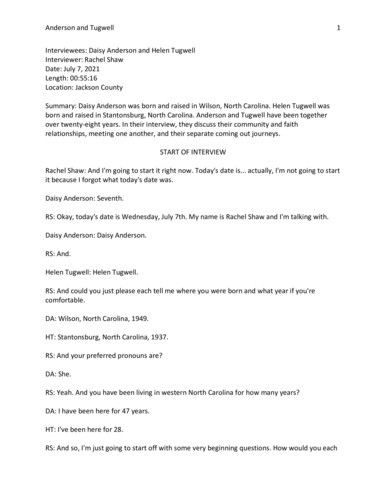




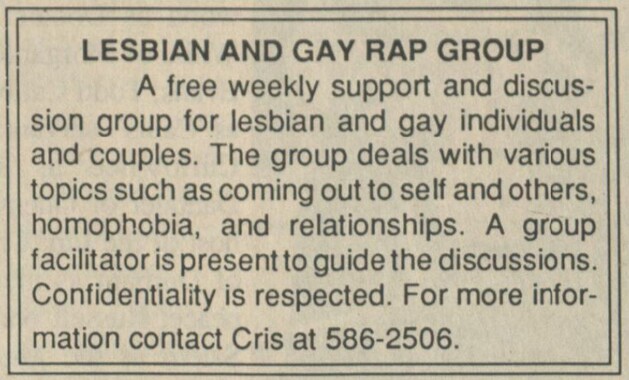


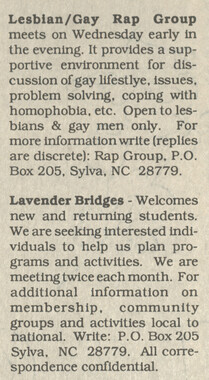
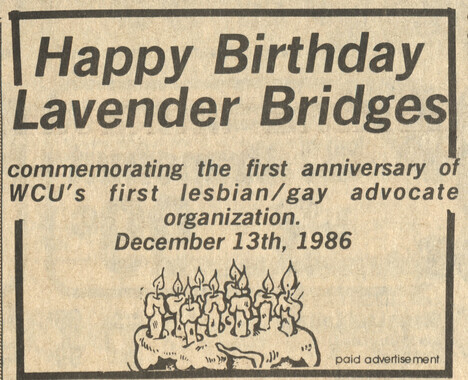
.jpg)

